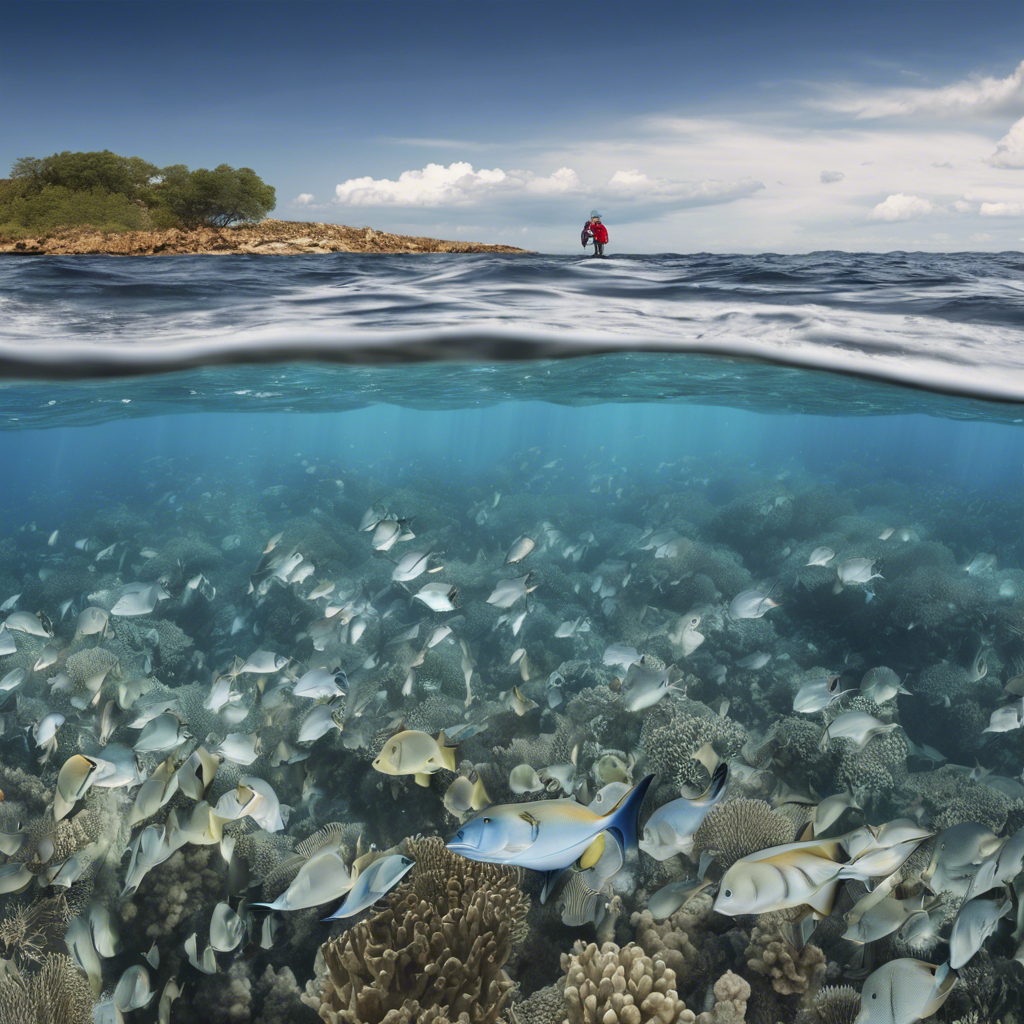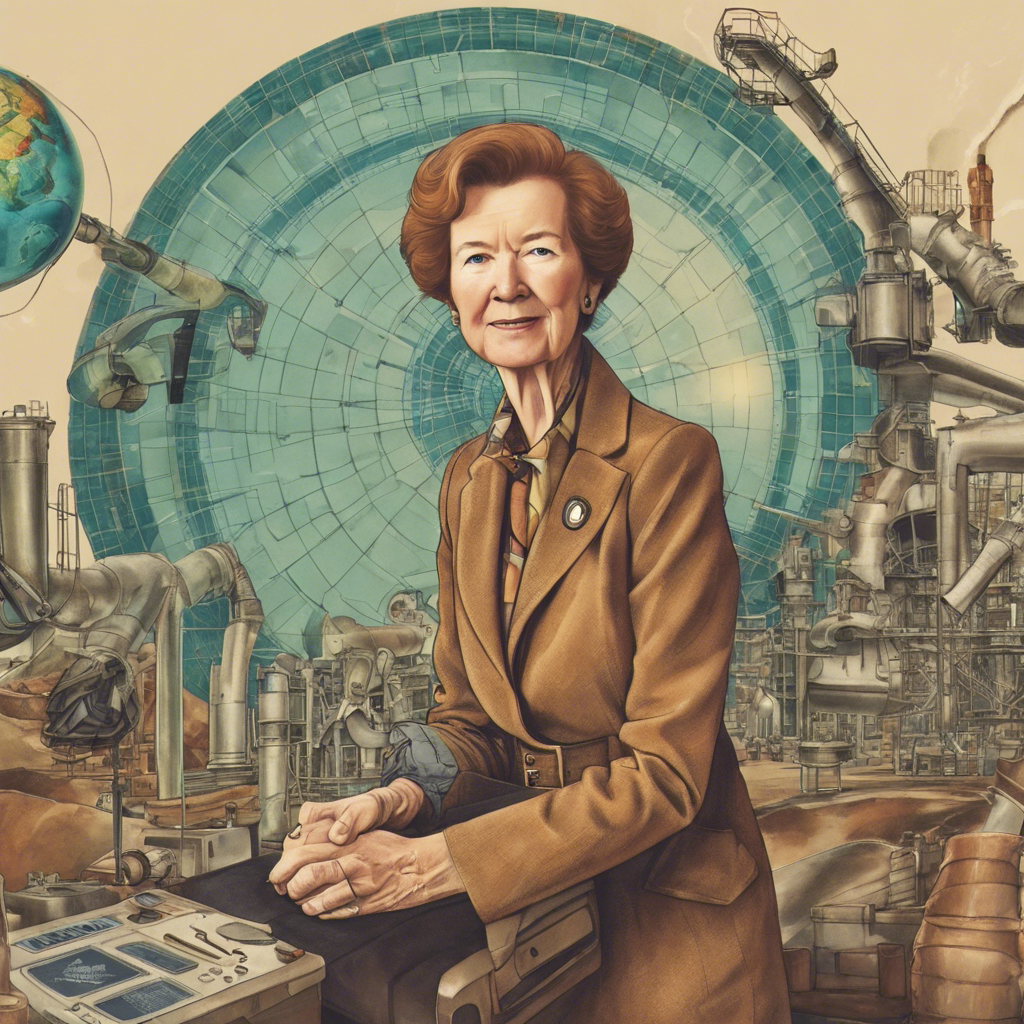Tackling Global Warming: The Urgent Need for Enhanced Marine Observations

Oceanographer Margaret Leinen Calls on World Leaders to Prioritize Marine Observations at COP28
As the world grapples with the urgent need to address global warming, one critical aspect often overlooked is the role of the oceans in climate change. While our attention is naturally drawn to the land, humanity must recognize the significance of the ocean’s impact on our planet’s climate. However, our understanding of the ocean’s dynamics remains limited, primarily due to a scarcity of observations below its surface. In light of this, distinguished oceanographer Margaret Leinen is urging world leaders to prioritize and enhance marine observations at the upcoming COP28 summit.
The Ocean’s Vital Role in Climate Change
The ocean plays a crucial role in regulating the Earth’s climate. It absorbs vast amounts of heat and carbon dioxide, acting as a natural buffer against rising global temperatures. Additionally, it influences weather patterns, drives ocean currents, and supports a diverse range of ecosystems that contribute to the overall health of our planet. Therefore, to effectively address climate change, we must gain a comprehensive understanding of the ocean’s behavior and its interactions with the atmosphere.
The Blind Spot in Our Knowledge
Despite the ocean’s significance, our understanding of its dynamics remains limited. While satellites continuously monitor the Earth’s atmosphere and land, we lack comparable observations of the ocean’s depths. This blind spot hinders our ability to accurately model and predict climate change, leaving us with an incomplete picture of the planet’s overall health. Without comprehensive data on the ocean’s temperature, salinity, and current patterns, our climate models are incomplete, hindering our ability to develop effective mitigation strategies.
The Urgent Need for Enhanced Marine Observations
Recognizing the critical role of marine observations, oceanographer Margaret Leinen is calling on world leaders to prioritize this issue at the upcoming COP28 summit. Leinen emphasizes the urgency of ramping up efforts to collect data from the ocean’s depths. One key initiative in this regard is the Argo program, which deploys a network of autonomous floats to gather crucial information about the ocean’s properties.
The Argo floats, equipped with sensors, continuously collect data on temperature, salinity, and other vital parameters as they drift with ocean currents. This data is then transmitted to satellites and made available to scientists worldwide. However, the current coverage of Argo floats is insufficient to provide a comprehensive understanding of the ocean’s behavior. Leinen stresses the need to expand the Argo program and invest in other innovative technologies to bridge the observational gap.
The Implications for Climate Change Mitigation
Enhanced marine observations have far-reaching implications for climate change mitigation. By improving our understanding of the ocean’s behavior, we can refine climate models, leading to more accurate predictions and targeted mitigation strategies. This knowledge will enable policymakers to make informed decisions that effectively address the challenges posed by global warming.
Moreover, a comprehensive understanding of the ocean’s dynamics will shed light on the impact of climate change on marine ecosystems. Rising sea temperatures, ocean acidification, and changing currents have profound consequences for marine life, including coral reefs, fisheries, and coastal communities. By obtaining accurate and timely data, we can develop strategies to protect and restore these vital ecosystems, ensuring their resilience in the face of climate change.
Conclusion:
As world leaders gather at COP28 to address the pressing issue of global warming, oceanographer Margaret Leinen’s call for enhanced marine observations serves as a crucial reminder of the ocean’s role in climate change. By expanding initiatives like the Argo program and investing in innovative technologies, we can bridge the observational gap and gain a comprehensive understanding of the ocean’s behavior. This knowledge will not only refine climate models but also inform targeted mitigation strategies and protect marine ecosystems. It is time to prioritize the oceans and ensure that we have a complete understanding of our planet’s climate dynamics.










